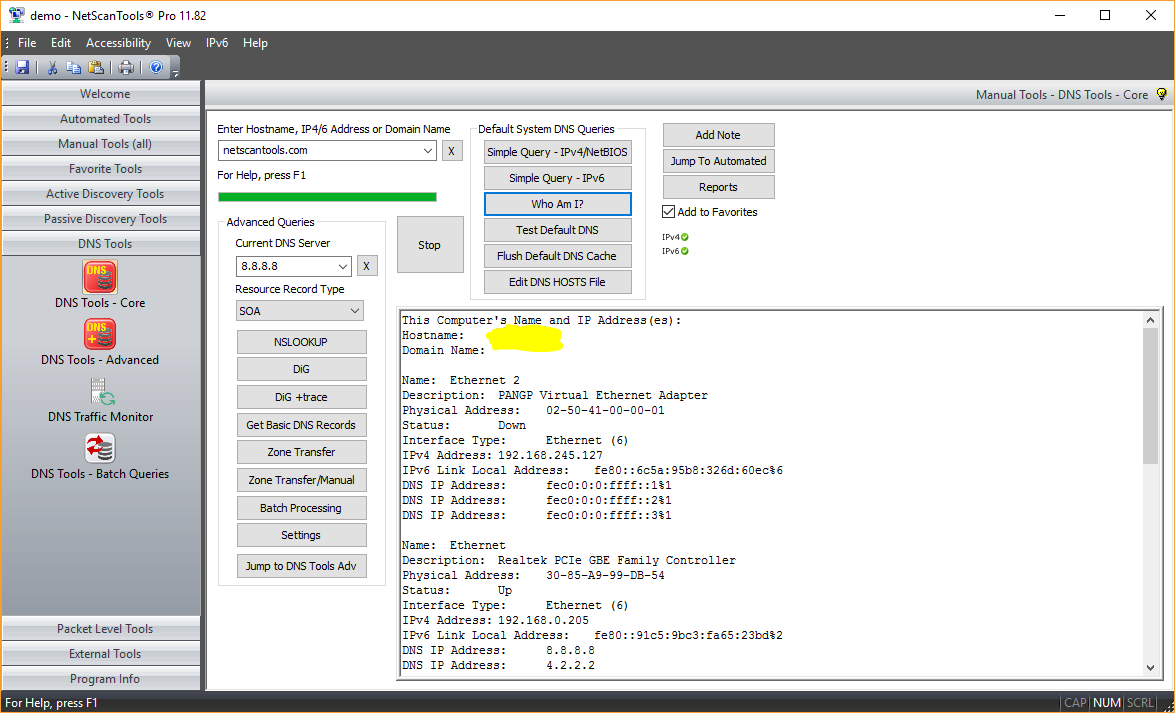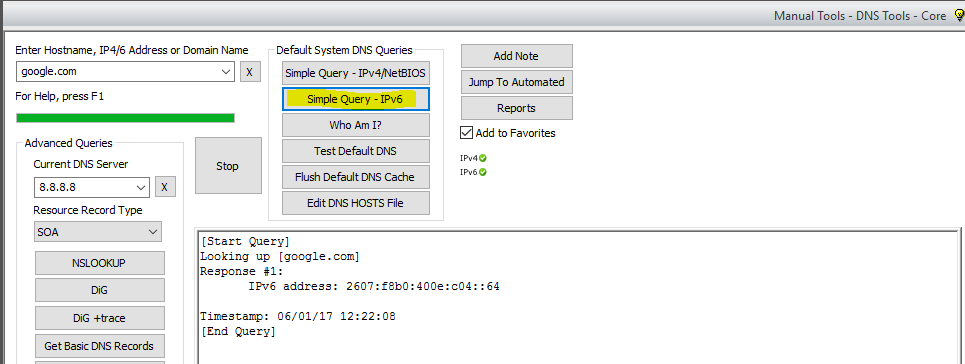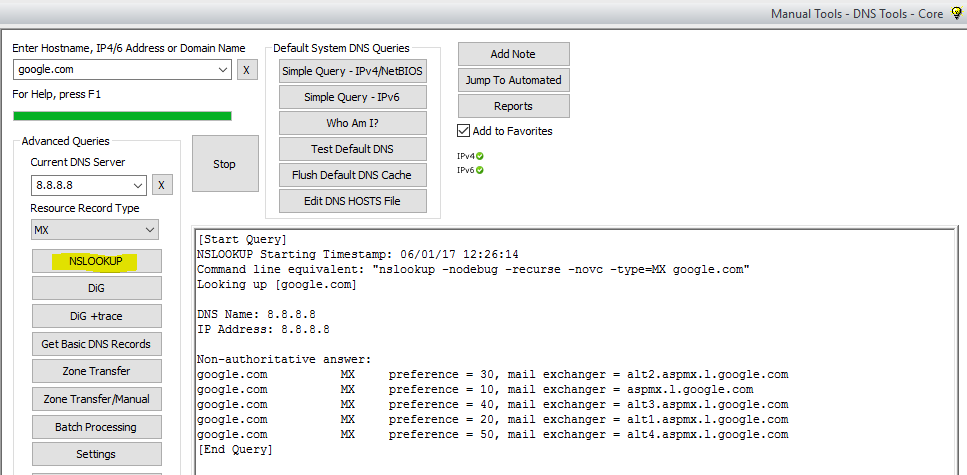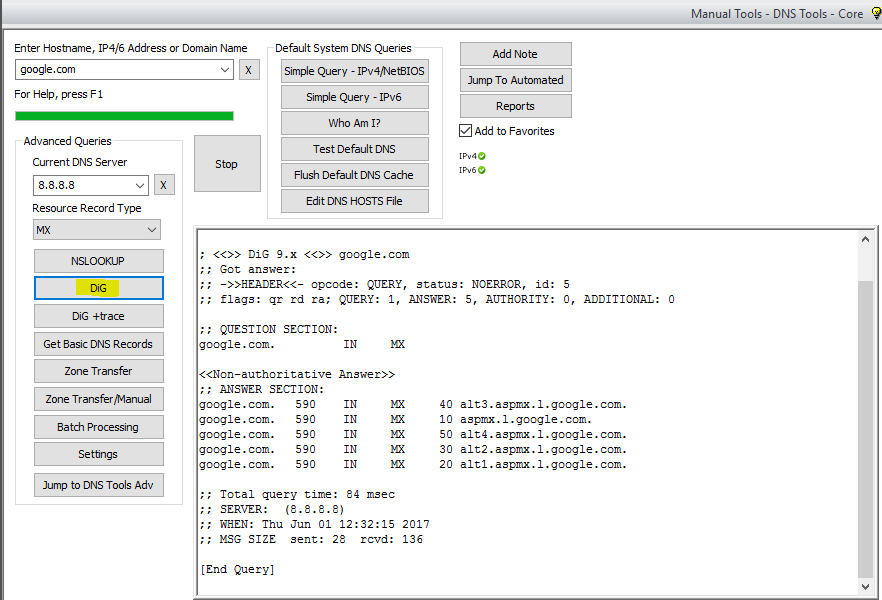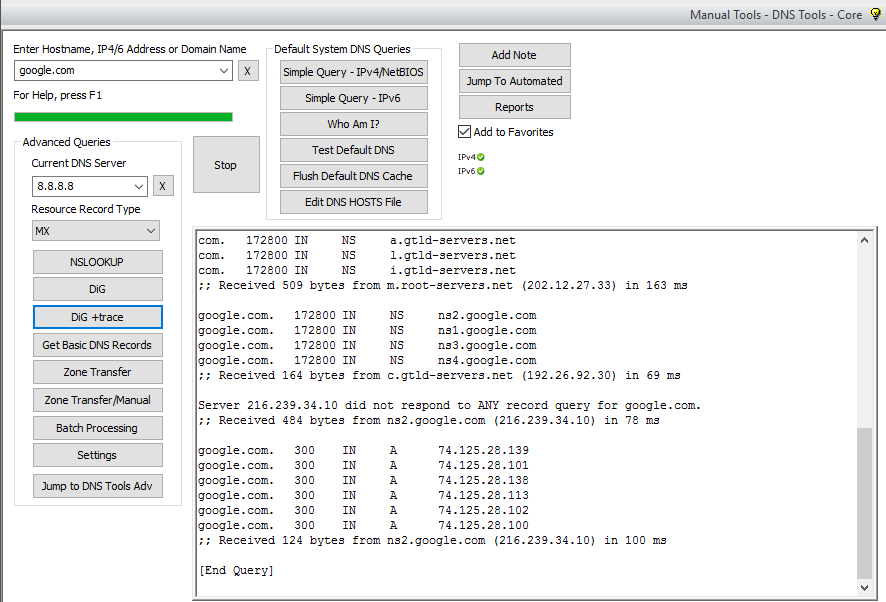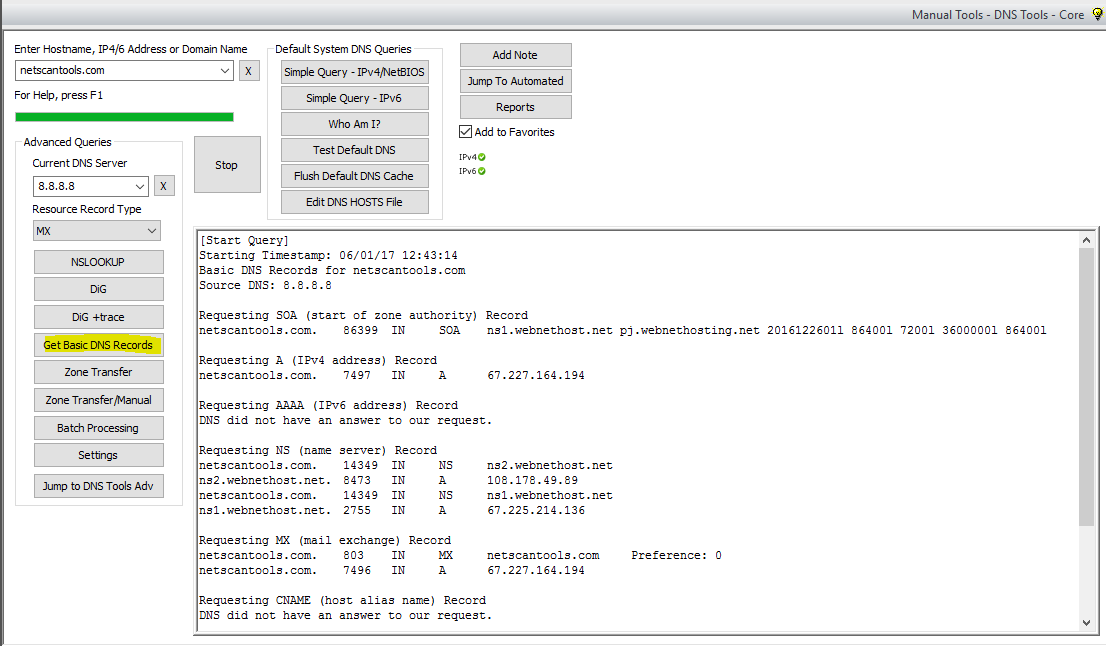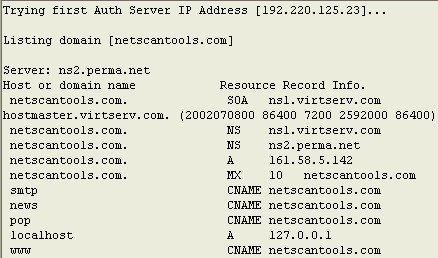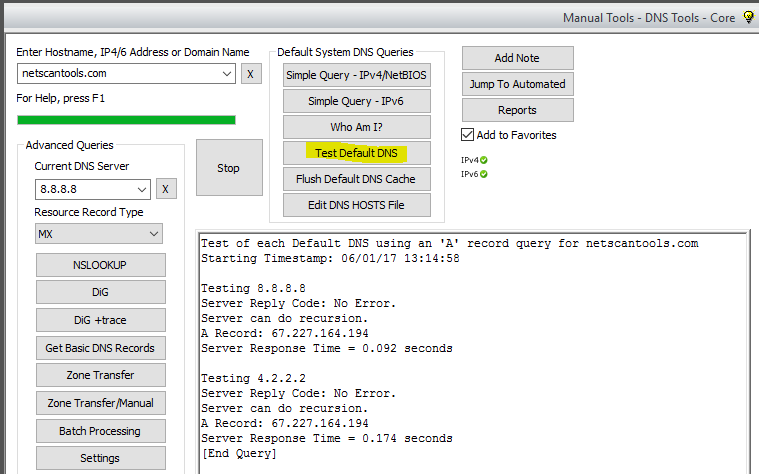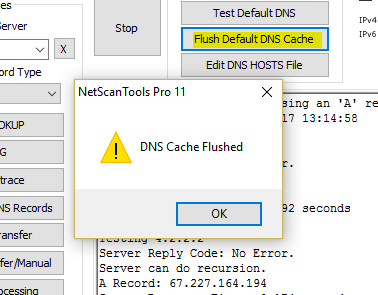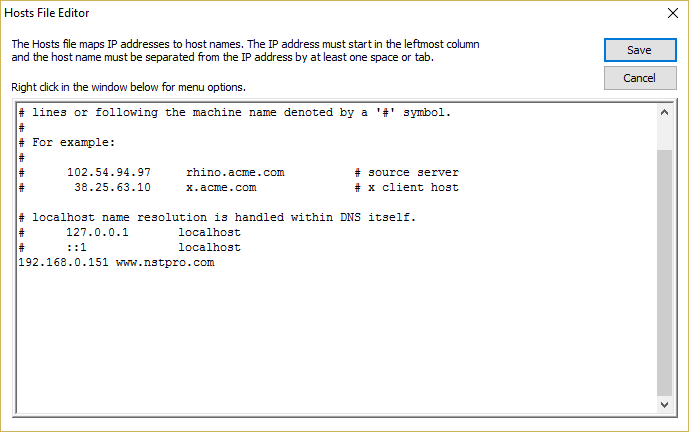Purpose of the DNS Tools - Core
This toolset provides methods for accessing and reviewing many types of DNS records from any accessible DNS.About DNS Tools - Core
DNS Tools - Core are a collection of powerful tools for querying DNS servers. Use the tools to troubleshoot DNS settings or determine other name resolution problems. This is a core set of DNS tools that let you see resource records stored in DNS. Currently only IPv4 connections to DNS are possible, but IPv6 (AAAA) records can be retrieved.
Related Tool Links: DNS Tools - Advanced
A core set of DNS Tools
Simple Query IPv4/IPv6
Two tools that use your operating system's built-in resolver to do basic IPv4 or IPv6 DNS queries. It accepts an IPv4/IPv6 address or hostname and queries your default name servers for the resolution. Your operating system may also attempt to determine the NetBIOS computer name if the default DNS fails to respond to an IP address query. Both IPv4 and IPv6 are supported, but you need an IPv6 capable operating system like Windows 10, 8.x, or 7 to do IPv6 queries
DiG
Actually two types of DiG (domain information groper). One is standard unix like and the other is the equivalent of DiG +trace. This is essentially the same data as nslookup except in a different format. DiG +trace provides a traceback to the root servers of all delegated zone responsible name servers down to the authoritative host for the domain or IP address you entered.
Zone Transfer (automatic or manual)
This tool can show all the devices registered in a DNS zone that defines a domain using a 'zone transfer' request. We provide two types of Zone Transfer: one attempts to automatically locate the Authoritative DNS to make the transfer possible and the other allows you to specify the Authoritative DNS for the Zone. DNS servers that implement tight security will not allow you to do a zone transfer unless you are on an approved IP address list. Transfer method is TCP using AXFR DNS protocol.
Test Default DNS
This tool takes an IP address or hostname and requests the A or PTR record from each DNS name server assigned to your computer. This tells you if each default DNS is working (response time too) or communicating properly when a simple name resolution query is made by any internet enabled program.
Flush Default DNS Cache
Flush Default DNS Cache does what it says - it clears your local cache of IP addresses and hostnames that were recently resolved. It accomplishes exactly the same thing as doing ipconfig /flushdns from the command line. This only affects names and IPs resolved by your TCP/IP networking subsystem, it does not affect anything resolved using our nslookup or dig tools.
Hosts File Editor
The Hosts file is used by Windows (and other operating systems) as a local database for resolving hostnames to IP addresses and vice versa. If something is in the hosts file, TCP/IP uses the information found in the hosts file instead of querying DNS. The hosts file is a simple text file and we have provided an editor to help you manage it. NetScanTools Pro must be run using 'Run as administrator' in order to edit and save changes to the hosts file.
A video of DNS Tools - Core in action!
Link to YouTube Video (If you click on the link below, you will be leaving our website - Warning - YouTube uses cookies)DNS Tools - Core demonstration video
Try the NetScanTools Pro demo free for 14 days
DEMO Version End User License Agreement (EULA)How to Uninstall

